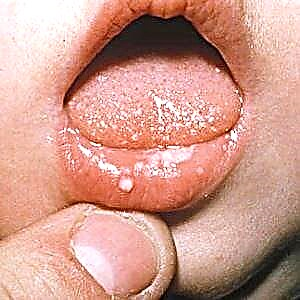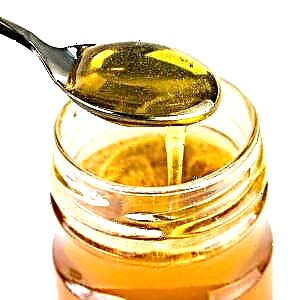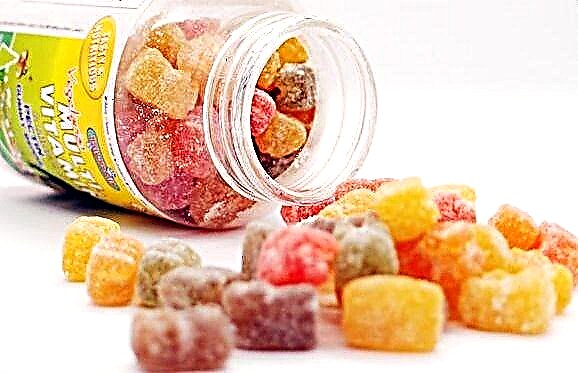One day, parents may find that their baby is not as cheerful as it used to be. He has become capricious, eats poorly and sleeps. The reason may be that the child has a sore tongue and mouth in general. The sores on the tongue of the crumbs are painful and cause inconvenience when eating. But they are usually not a serious problem. Most mouth ulcers can be easily controlled and treated at home.
Child's mouth ulcers, also called aphthous stomatitis, are sores that develop inside the mouth. They are usually located on the gums, cheeks, palate, or tongue. Talking, eating, drinking, or brushing your teeth often makes the pain worse.
Stomatitis usually presents as round, painful, open sores that are white or yellowish in color and have a red "halo" around them. They are usually small (6 millimeters across) and shallow, but sometimes the ulcers merge, becoming larger.
Most often, the elements of the rash appear singly, but they can occur in small groups. Sometimes the area tingles or burns before stomatitis develops.
Common signs and symptoms of mouth ulcers in children:
 sudden restlessness;
sudden restlessness;- moodiness or apathy of the child;
- ulcers and blisters on the surface of the tongue or other parts of the mouth. They are usually small but can be filled with liquid;
- swelling of the gums, which sometimes bleed;
- the child may suffer from acute pain in the mouth;
- it is difficult for the child to eat and drink. This leads to decreased appetite.
Stomatitis usually has no other symptoms. Otherwise, it could be a sign of another medical condition that needs to be diagnosed.
If a child develops severe stomatitis with the following symptoms, urgent medical attention may be required:
- loss of body weight;
- tummy pain;
- high fever that has no obvious cause;
- presence of blood or mucus in the stool;
- inflammation or ulceration of the skin around the anus.
This condition can be if the stomatitis was caused by celiac disease or inflammatory bowel disease (Crohn's disease or ulcerative colitis).
It takes about 2 weeks to heal. All this time, the sores in the child's mouth can be painful, although the first 3 to 4 days are usually the most severe. If they are not too large or deep, they usually heal without scarring.
If your child develops sores that last longer than 2 weeks, see a specialist. Also consult if ulcers appear more than two to three times a year.
Causes:
 mouth ulcers in children usually occur when they are sick, tired, or under severe stress;
mouth ulcers in children usually occur when they are sick, tired, or under severe stress;- physical injuries such as cheek biting or poor teeth brushing techniques that irritate the delicate tissues of the mouth can cause mouth sores. Infections or viruses, such as herpes or fungi, can lead to cold sores or thrush;
- changing your diet or increasing your intake of sweets and flour products. This is more noticeable when the child has been at a holiday or after a special occasion, such as a birthday;
- some medications, such as nonsteroidal anti-inflammatory drugs, can cause mouth ulcers;
- nutritional deficiencies. Sometimes mouth ulcers can repeatedly affect children who are deficient in iron, zinc, folic acid, or B vitamins. Some babies may have a genetic predisposition to this disease;
- enteroviral vesicular stomatitis. Another cause of multiple mouth ulcers is a condition popularly called hand-foot-mouth syndrome. It is accompanied by the appearance of ulcers on the tongue and on the sides of the mouth. The Coxsackie A-16 virus is responsible for this disease, which is common in children from one to five years of age.
Diagnostics
Studies are usually not done to detect stomatitis, as the doctor can determine it based on medical history and only a physical examination.
If your child has frequent or severe episodes of recurrent stomatitis, your doctor may do tests to look for possible nutritional deficiencies (these can be corrected with dietary adjustments or prescription vitamin supplements), immune system deficiencies, or allergies.
Treatment
Usually mouth ulcers do not need treatment as they go away on their own after a week or two. However, during this time, the child may experience pain and discomfort. It is more difficult for a kid to cope with pain, unlike adults. There are several home remedies you can use to help relieve your child's pain.
 Honey. This is the best option when the child is over a year old. Just dab some honey on the sore and let it do its anti-microbial job. An added benefit is that because it is sweet, the baby will not resist using it. However, remember that it is not safe to give honey to a baby under 12 months old.
Honey. This is the best option when the child is over a year old. Just dab some honey on the sore and let it do its anti-microbial job. An added benefit is that because it is sweet, the baby will not resist using it. However, remember that it is not safe to give honey to a baby under 12 months old.- Turmeric. An amazing plant with anti-inflammatory, antibacterial and antiseptic properties. Make a honey and turmeric paste and apply to the affected area. This will not only reduce pain, but it will also speed up the healing process.
- Coconut. The cooling effect of coconut is aimed at soothing the pain associated with mouth ulcers. Either give your child a drink of coconut water, or apply a small amount of pure coconut oil to the affected areas.
- Cottage cheese. Contains lactic acid, which is a natural antiseptic and therefore disinfects and heals oral ulcers. Give your child regular cottage cheese or make delicious cottage cheese mass.
- Curry leaves help to heal ulcers in two ways. First, it is a rich source of vitamins. So if it is their deficiency that is causing the ulcers, curry leaves will fight it. On the other hand, curry has anti-microbial and anti-inflammatory properties. Make a paste with curry leaves and butter and have your child either drink it or use it as a mouthwash.
- Aloe vera. If you have access to an aloe vera plant, make a paste out of the leaves and apply it directly to the ulcer.
- Salt water rinse. If the child is old enough to rinse the mouth, it can help relieve pain.
If these methods do not work, you can seek professional medical attention.
Over-the-counter medicines to treat ulcers and relieve pain are available at pharmacies. But most are not suitable for children, so talk to a specialist first.
Miramistin and Chlorhexidine are often prescribed for children, but you should avoid any medications that contain aspirin.
Stomatitis that doesn't get better with home remedies and over-the-counter medications may need a prescription medication.
Baby care:
 make sure your child uses a soft toothbrush to brush their teeth;
make sure your child uses a soft toothbrush to brush their teeth;- Do not give your child spicy or acidic drinks and foods with hard or scratchy edges before the ulcer has healed. Solid foods are suitable for older children, but if the child is too young, preference should be given to mashed potatoes, baby food, applesauce, yogurt, or other foods that are soft and do not require long chewing. Try not to feed your child solid food if it is in pain;
- give your child plenty of water to drink. Sometimes your baby refuses to drink because of pain, but it is very important that you force him to drink enough fluids. Dehydration can make the condition worse. See a doctor immediately if your child has signs of dehydration;
- cold can reduce the swelling from pain in the ulcer area. Let your child drink cool water throughout the day.
How to reduce the risk of stomatitis?
You can reduce your risk of mouth ulcers by following these tips:
- try to reduce stress in your child's life;
- Cut back on acidic foods such as citrus fruits, tomatoes, pineapple, and orange juice.
- make sure your child eats regularly, at the same time;
- Set up a bedtime schedule to ensure that your child gets enough sleep.
Although stomatitis is uncomfortable and painful, in many cases, sores are not a huge problem. Many people have learned to handle them. And your child can do it too.
Article rating:

 sudden restlessness;
sudden restlessness; mouth ulcers in children usually occur when they are sick, tired, or under severe stress;
mouth ulcers in children usually occur when they are sick, tired, or under severe stress; Honey. This is the best option when the child is over a year old. Just dab some honey on the sore and let it do its anti-microbial job. An added benefit is that because it is sweet, the baby will not resist using it. However, remember that it is not safe to give honey to a baby under 12 months old.
Honey. This is the best option when the child is over a year old. Just dab some honey on the sore and let it do its anti-microbial job. An added benefit is that because it is sweet, the baby will not resist using it. However, remember that it is not safe to give honey to a baby under 12 months old. make sure your child uses a soft toothbrush to brush their teeth;
make sure your child uses a soft toothbrush to brush their teeth;

